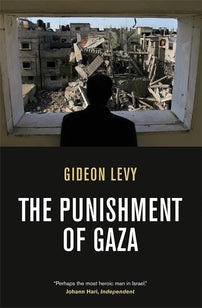From the River to the Sea
No words can fully express Palestine’s seventy years of catastrophe, no words except: “From the river to the sea, Palestine will be free.”

This is part of an ongoing blog series centered around the phrase "From The River To The Sea." To view the full series click here.
In 2018, I was in the West Bank in connection with a “Reading Marx in Ramallah” event organized by the Rosa Luxemburg foundation. The event itself was wonderful, stimulating, an expansive theoretical and linguistic encounter. But I never wrote about my visit, about the miles of wall scarring the landscape, about the aggressive checkpoints, about the soldiers who pulled a woman off our bus as we were leaving Hebron.
Unwilling to write from my experience, to adopt a first-person perspective that would end up making it all about me and my shock and displace yet again the actuality of Palestine, I had no words adequate to the responsibility of bearing witness. To talk about Ramallah being placed under lockdown by the IDF because some kids threw rocks, about how our driver to the university took alternative routes because he was trying to avoid gunfire, about the family whose house was leveled in retaliation for a son’s resistance – even to say “because” in this context imposes a kind of rationality or explanation over ongoing violence, becoming complicit in making sense of the senseless.
[book-strip index="1" style="buy"]
The phrase “refugee camp” makes me think of tents, not decades-old crumbling and crowded apartment complexes with small businesses and schools. Neighborhoods where settlers come in and take a house, raze a house, fence off a lot, make streets impassable for the many who’ve lived there for years materialize an ongoing violence of dispossession impossible to endure that many nevertheless endure. How can any kind of sense be made of segregated highways, roads that can be used only by those with specific license plates? “See that bus, those are settlers.”
No words can fully express Palestine’s seventy years of catastrophe, no words except: “From the river to the sea, Palestine will be free.” The slogan’s power stems from its rejection of occupation and apartheid. Refusing to make sense of colonial dispossession, it announces a future liberation, a world where the freedom of some isn’t premised on walling off and imprisoning others. Instead of dwelling in the crime of settlement, the slogan marks its elimination.
The current backlash against “From the river to the sea” isn’t a surprise; it’s a reaction to the upswell of insistence that we cannot and will not accept oppression, apartheid, ethnic cleansing, and genocide. Israel, the United States, Canada, the UK, France and so on have all built their power by amplifying division. They produce, racialize, mobilize, and militarize hatred. Incessant in their preoccupation with security, they seed and cultivate their own insecurity. The ancients understood this. For them, the tyrant is the one most enslaved and least free, the one most plagued by fear. The venality of those who want to take the words from our mouths, who want to make “From the river to the sea” an antisemitic statement rather than a cry for liberation, is the futile grasp of the tyrant as he loses control.
A decade ago, few would have imagined that hundreds of thousands of people would be taking to the world’s streets chanting “From the river to the sea, Palestine will be free.” Now we are. The impossible has become inevitable: who cannot know that the oppressed will rise up against their oppressors? The game of ignoring apartheid or pretending that it’s justified is over. Everywhere.


